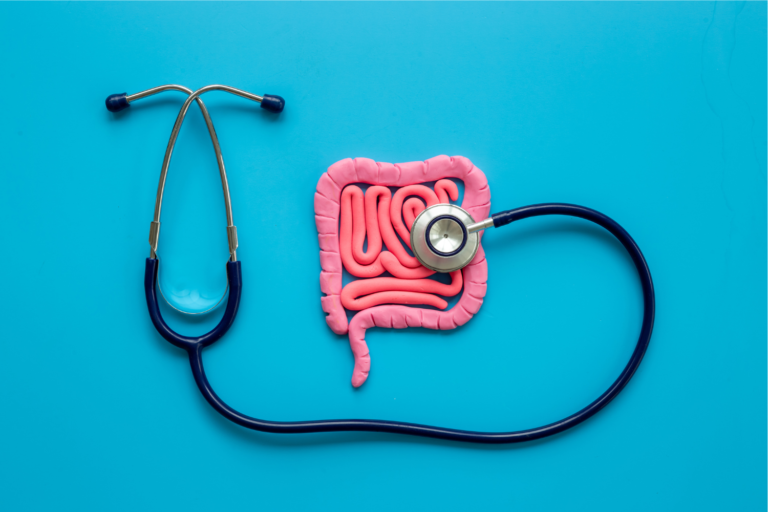PCOS (polycystic ovary syndrome) affects 10–15% of women of reproductive age and is the most common cause of infertility. The issue is therefore significant, and yet impact of nutrition on the management of PCOS is often overlooked. Few people realize how crucial diet is in dealing with polycystic ovary syndrome. Numerous studies indicate that well-balanced diet can lead to significant improvements in health and reduction in the symptoms associated with PCOS. It is also important to note that in addition to proper nutrition, physical activity, stress reduction and good sleep hygiene play vital roles. These factors greatly influence body’s metabolic functions.
PCOS diet is all about avoiding monotony
Now that we know the importance of proper nutrition shouldn’t be underestimated during treatment, how should you structure your diet and what should you pay attention to? One key answer is variety. Your body needs a wide range of meals to provide all essential nutrients it requires. Choose local, fresh and seasonal foods — this will help ensure your diet is well-balanced and nutrient-dense.
Choose valuable sources of protein and carbohydrates
High-quality protein should form the foundation of your diet because it helps reduce appetite. This is especially important in PCOS, as women struggling with this condition often experience increased feeling of hunger. Make sure each meal contains adequate amount of complete protein, such as eggs, dairy products, meat, fish or seafood.
When it comes to carbohydrates, focus on including whole grains such as buckwheat, oats, whole-grain bread and legumes. These foods are rich in dietary fiber, which promotes greater feeling of fullness after meals.
What sources of fats should you choose in PCOS diet?
Prioritize plant-based sources of fats, including unrefined oils like olive oil, rapeseed oil and flaxseed oil, as well as seeds (e.g., sunflower, pumpkin) and nuts (e.g., walnuts, almonds, pistachios). These foods are not only good sources of healthy fats but also provide protein, vitamins and various minerals (such as B vitamins, vitamin E, folic acid and phosphorus).
Additionally, fatty marine fish contain omega-3 fatty acids (EPA and DHA), which have anti-inflammatory properties. Try to include them in your diet at least once a week.
Importance of glycemic index and glycemic load in the PCOS diet
Due to frequent coexistence of PCOS and insulin resistance, it is crucial to consider how foods affect blood glucose levels. Try to avoid foods with high glycemic load. The more severe the issues with carbohydrate metabolism, the more careful you should be when selecting foods. Excessive consumption of products with high glycemic index can contribute to weight gain and development of obesity.
What is glycemic load?
You’ve probably heard the advice to choose foods with low glycemic index (GI) and may wonder why it’s also important to pay attention to glycemic load (GL). Not all foods with high GI also have high GL. Glycemic index has its limitations, as it does not take into account the amount of carbohydrates present in a specific portion of food.
For example, whether you consume 100 grams of potatoes or 1 kilogram, the GI table lists the same value. However, the actual rise in blood glucose after eating these different amounts will be significantly different.
Glycemic load (GL) is more precise in this regard because it considers quantity of carbohydrates in a given serving of food. This makes it much easier to estimate body’s glycemic response after consumption.
Don’t forget about the spices
They may seem inconspicuous, but their effects on improving health are incredibly beneficial. Even just a teaspoon of cinnamon can improve insulin sensitivity, lower blood sugar levels and slow down gastric emptying.
Turmeric, on the other hand, has anti-inflammatory properties, helps reduce body fat and lowers the risk of type 2 diabetes. Also, pay attention to ginger and black seed (nigella sativa) — they help lower blood glucose levels.
What to avoid with PCOS?
- Avoid highly processed foods – this includes not only fast food, juices and sugary drinks but also dishes made from refined white flour.
- Limit your intake of sweets – replace them with homemade alternatives. Avoid sugar and substitute it with erythritol or xylitol, which have less calories and, due to their zero glycemic index, do not affect blood glucose or insulin levels.
- Avoid industrially refined vegetable oils, such as canola oil, corn oil and hydrogenated fats like margarine – these oils have pro-inflammatory effects and, when exposed to light and heat, can easily transform into harmful trans fats. Pay attention to the intake of saturated fats from animal sources. Try to control your consumption of butter, full-fat dairy, meat and processed meat products.
- Do not fry foods until they are browned – opt for gentler cooking methods like boiling or steaming.
- Avoid alcohol.
- Pay attention to phytoestrogens (found in soy and its derivatives) – bioactive compounds in soy bind to estrogen receptors and may influence fluctuation of estrogen levels in the body. This can disrupt ovulation in women with PCOS.
Consider proper supplementation
In addition to well-balanced diet, supplements can also support improvement. Pay attention to the following:
- Omega-3 fatty acids, which lower androgen levels and may also increase chances of pregnancy in women diagnosed with PCOS.
- Vitamin D, which regulates menstrual cycle, improves fertility and metabolism.
- Selenium, which has antioxidant properties and protects against development of many diseases.
- Inositol, a less well-known but very effective supplement, as confirmed by research. It affects functioning of the nervous system, improves insulin sensitivity, restores hormonal balance, enhances reproductive function and restores ovulation cycle.
Summary
Properly balanced, diverse diet plays crucial role in alleviating symptoms and improving health of women with PCOS. Key elements of the diet include consumption of high-quality protein, fiber-rich foods, plant-based fats and fatty fish. It is also important to avoid foods with high glycemic index and load and to limit processed foods and saturated fats from animal sources. Proper supplementation can also be an essential support.
Sample anti-inflammatory diet for PCOS – mobile application subscription
If you suffer from PCOS and want to improve your eating habits, try subscribing to the mobile app with sample anti-inflammatory diet. Calculate your calorie requirements and get inspired by recipes with low glycemic load, rich in high-quality protein sources and healthy fats.
Or perhaps you want individual cooperation with dietitian? If you want to tailor your nutrition to your needs, capabilities and expectations, book an initial consultation or purchase a 3-month package.
Sources:
- Legro, R. S., et al. (2013). “Diagnosis and treatment of polycystic ovary syndrome: an Endocrine Society clinical practice guideline.” Journal of Clinical Endocrinology & Metabolism.
- Teede, H. J., et al. (2018). “Recommendations from the international evidence-based guideline for the assessment and management of polycystic ovary syndrome.” Human Reproduction.
- Moran, L. J., et al. (2011). “Dietary composition in the treatment of polycystic ovary syndrome: a systematic review to inform evidence-based guidelines.” Journal of the Academy of Nutrition and Dietetics.
- Lujan, M. E., et al. (2019). “Nutritional management of polycystic ovary syndrome.” Clinical Obstetrics and Gynecology.




